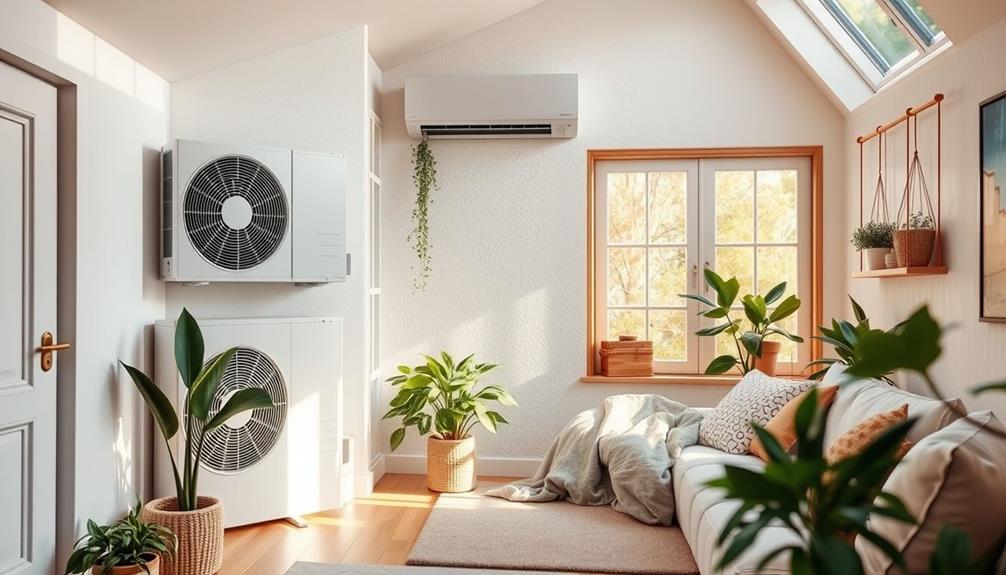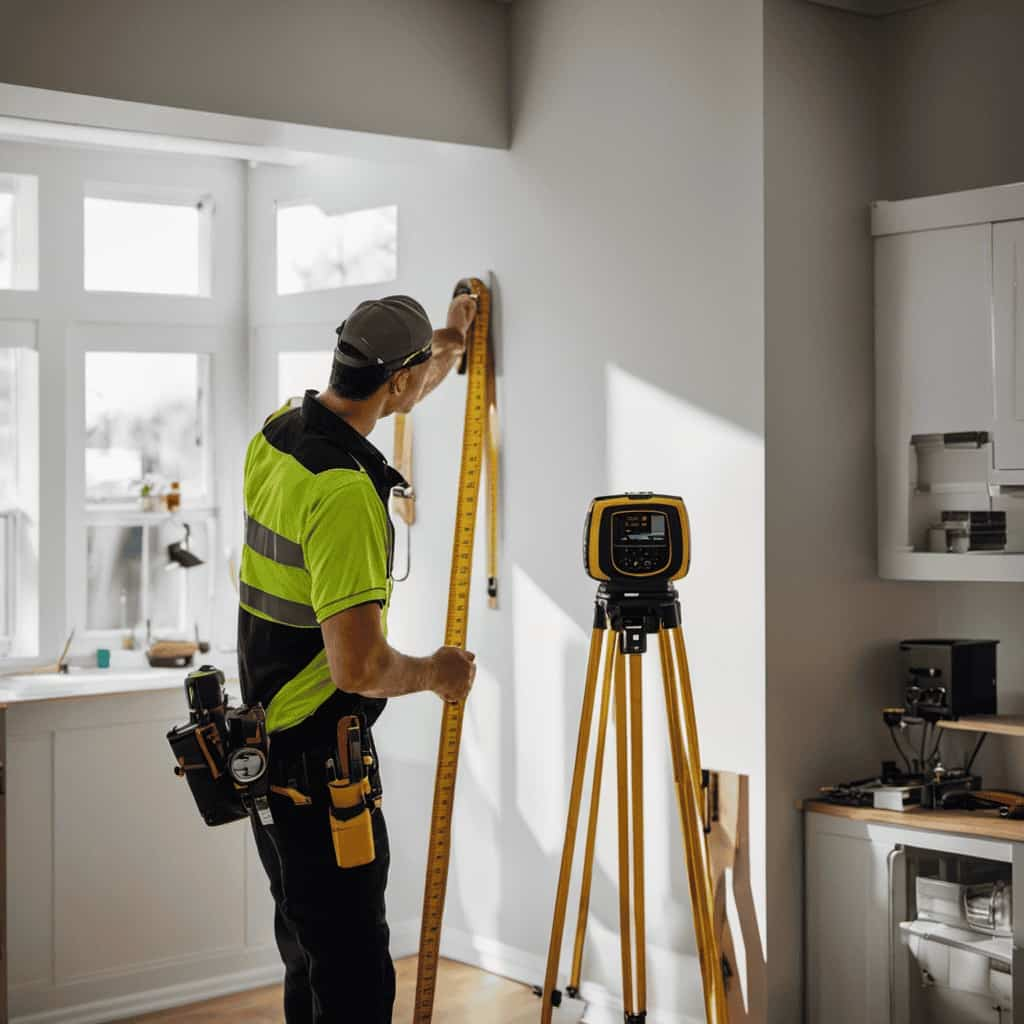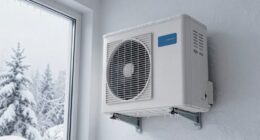Retrofitting your home for a heat pump system can remarkably boost energy efficiency while lowering your carbon footprint. You'll need to assess your current heating infrastructure and may require new pipework for peak performance. Keep in mind that installation costs typically range from £5,000 to £40,000, but grants can help offset these expenses. Most buildings, even older ones, can accommodate heat pumps, provided they have adequate insulation and outdoor space. Engaging experienced heating engineers guarantees a smooth installation process. Stick around to uncover more essential tips and insights for a successful retrofit that maximizes your home's potential.
Key Takeaways
- Assess your home's existing heating infrastructure and insulation levels to determine necessary modifications for heat pump compatibility.
- Engage experienced heating engineers for accurate heat loss calculations and to ensure proper retrofitting of your heating system.
- Consider outdoor space requirements for the installation of air source heat pumps and ensure optimal placement for airflow.
- Explore available financial assistance options, such as the Boiler Upgrade Scheme and ECO4, to mitigate installation costs.
- Comply with the Microgeneration Certification Scheme (MCS) to qualify for grants and ensure efficient installation of the heat pump system.
Benefits and Drawbacks of Heat Pumps
When considering a switch to a heat pump system, you might wonder about the potential benefits and drawbacks. One of the biggest advantages of heat pumps is their remarkable efficiency, achieving 300-500% performance compared to traditional gas boilers. This efficiency not only reduces your carbon footprint but can also lead to long-term savings on energy bills.
Additionally, heat pumps can be a more reliable energy source, much like geothermal energy generation, providing consistent heating and cooling throughout the year. If you're retrofitting a heat pump, you could even increase your property value.
However, it's crucial to weigh the drawbacks. Many homeowners face initial skepticism regarding the installation costs, which can be high. While government grants, like the Boiler Upgrade Scheme, can provide financial assistance of up to £7,500, the upfront investment remains a concern.
Additionally, retrofitting a heat pump might require modifications to your existing heating systems, which can add to the complexity of the installation process.
Ultimately, while heat pumps offer significant benefits in energy efficiency and environmental impact, the potential installation costs and necessary adjustments to your current setup should be carefully considered. Balancing these factors will help you make an informed decision for your home.
Installation Requirements and Considerations
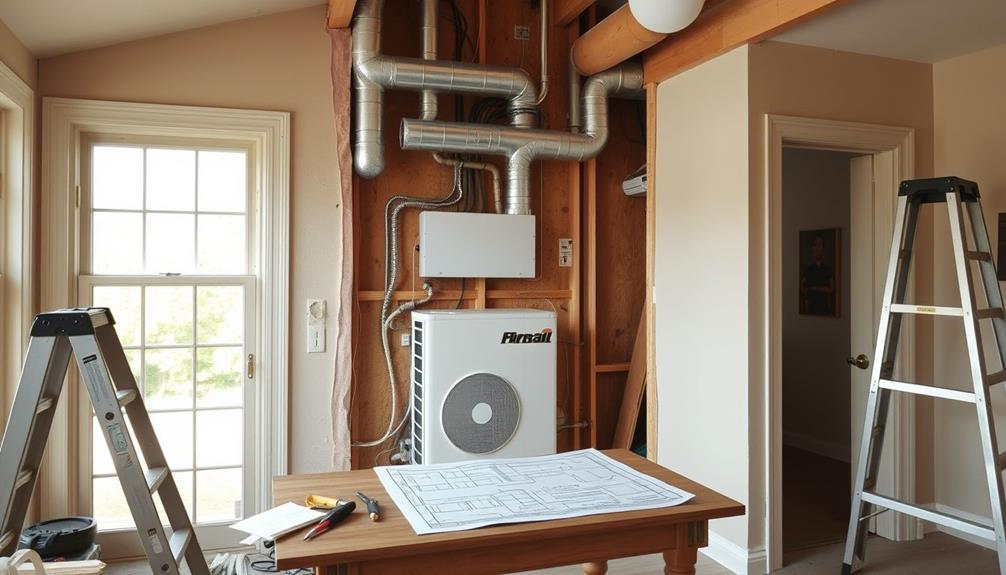
Retrofitting your home for a heat pump system involves several key installation requirements and considerations that can greatly impact efficiency and performance.
First, you'll need to assess your existing infrastructure. While you might retain some operational systems, new pipework will likely be necessary, particularly if your current setup doesn't accommodate the lower flow temperatures typical of air-source heat pumps. Using 28mm+ bore pipework enhances efficiency.
Additionally, consider the benefits of efficient combustion from modern heating solutions, which can complement your heat pump system.
Engaging experienced heating engineers is vital. They'll perform detailed heat loss calculations to guarantee your heat pump system meets your home's specific demands. Proper placement of the outdoor unit is essential for unobstructed airflow, especially in snowy areas where snow accumulation could hinder performance.
While most installations don't require planning permission, compliance with the Microgeneration Certification Scheme (MCS) is mandatory if you want to qualify for grants. If your home is a listed building, you may need additional Listed Building Consent.
Costs and Financial Assistance Options

Considering the financial implications of installing a heat pump system is essential for homeowners. Installation costs typically range from £5,000 to £40,000, but you can achieve significant savings during major renovations.
Since heat pumps qualify as low carbon technology, you can benefit from VAT exemptions and various government grants to help offset these costs. Additionally, exploring investment options such as a Gold IRA can provide a hedge against inflation, which is vital in managing the overall cost of home retrofitting in today's economy.
One prominent option is the Boiler Upgrade Scheme, which offers up to £7,500 for air and ground source heat pump installations. If you're a low-income household, additional funding is available through schemes like ECO4.
To confirm you qualify for these financial assistance options, it's vital to hire engineers with MCS certification, as this verifies compliance with regulations.
Moreover, tax incentives, such as a 50% first-year allowance, encourage investment in heat pump systems, further enhancing your savings.
By exploring these financial assistance options and understanding the installation costs, you can make a well-informed decision about retrofitting your home with a heat pump system.
Ultimately, these efforts not only help the environment but also contribute to long-term savings on your energy bills.
Building Suitability for Heat Pumps
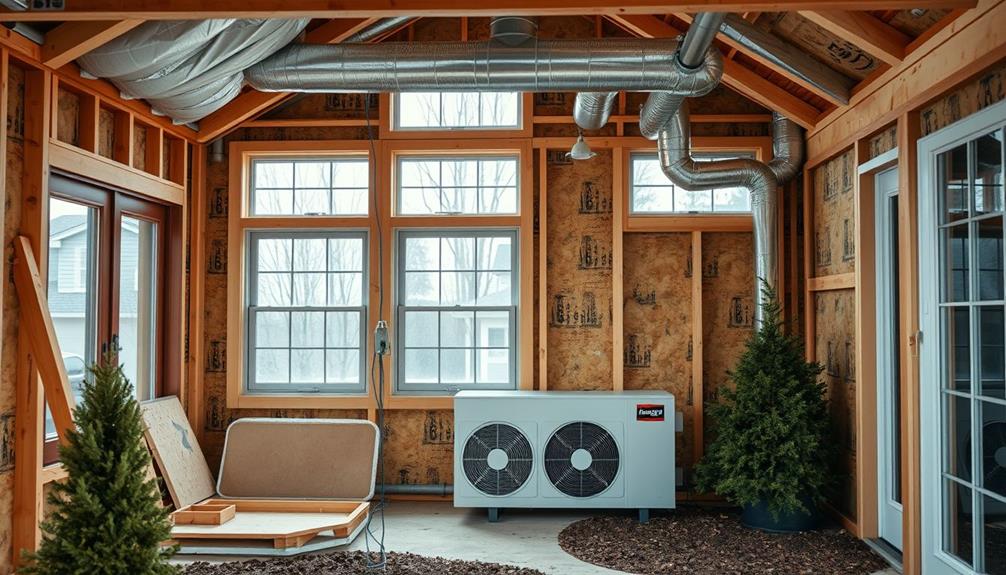
Evaluating your home's suitability for a heat pump system is vital for a successful retrofit. The good news is that most buildings, including older homes, can accommodate retrofitting heat pumps, particularly air source types. However, you'll need to assess several factors to guarantee an effective installation.
Thermal energy transfer basics are essential for understanding how your heat pump will operate efficiently.
- Imagine reduced energy bills each month.
- Picture a cozy home, no matter the weather outside.
- Feel the peace of mind knowing you've made a sustainable choice.
First, adequate insulation levels are important, as they greatly influence heat loss calculations and the size requirements for your heat pump.
Next, confirm you have sufficient outdoor space for air source heat pump installation, as the system needs ambient air for peak performance.
Environmental Impact and Sustainability

Upgrading to a heat pump system not only enhances your home's comfort but also plays an important role in promoting environmental sustainability. By utilizing renewable energy instead of fossil fuels, heat pumps greatly reduce your carbon footprint.
These systems achieve impressive energy efficiencies of 300-500%, meaning they can produce up to four times more heat than the electricity consumed. This efficiency minimizes reliance on non-renewable energy sources, helping you contribute to climate goals. Additionally, implementing AI-driven solutions in energy management can further optimize your home's energy consumption and sustainability.
Moreover, as you shift to heat pumps, you'll be supporting the integration of more renewable energy into the grid, further enhancing overall sustainability. Choosing heat pumps that use natural refrigerants also lessens their environmental impact, aligning with future regulations aimed at reducing greenhouse gas emissions.
In addition to these environmental benefits, you'll enjoy potential cost savings on your energy bills as heat pumps decrease overall energy consumption.
Frequently Asked Questions
Is It Worth Retrofitting a Heat Pump?
Retrofitting a heat pump's definitely worth considering. You'll enhance your home's value, reduce energy costs, and lower your carbon footprint. Plus, government incentives make it financially appealing, helping you save money in the long run.
How Much Does It Cost to Convert a House to a Heat Pump?
Wondering about the cost to convert your house to a heat pump? Typically, you're looking at £5,000 to £40,000, but government grants could lessen that burden considerably. It's worth exploring your options!
Can You Retrofit a Heat Pump?
Yes, you can retrofit a heat pump in most buildings. With minimal changes, experienced engineers can help assess your system's needs, ensuring efficiency and compliance for ideal performance and potential government grants.
Can You Install a Heat Pump in an Existing Home?
Yes, you can install a heat pump in your existing home. With proper retrofitting, adequate insulation, and sufficient outdoor space, you'll enjoy efficient heating and cooling while minimizing energy costs and enhancing comfort.
Conclusion
Retrofitting your home for a heat pump can be a smart switch toward sustainability and savings. While you weigh the warm advantages against potential pitfalls, remember to contemplate costs and compatibility. With the right preparation and planning, you can create a cozy, cost-effective climate control system that benefits both your budget and the environment. Embrace this energy-efficient evolution, and enjoy the delightful dividends of a well-designed, eco-friendly home heating solution!
